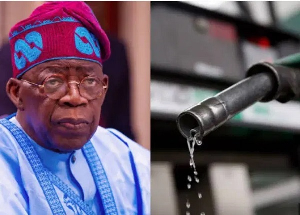In recent days, discussions across Nigeria have been dominated by the newly introduced 5% tax on fuel, officially referred to as a “surcharge on fossil fuel products.”
While confusion lingers about its origin and implications, it forms a crucial part of sweeping tax reforms outlined in the Nigeria Tax Act 2025 and its accompanying legislation.
Signed into law by President Bola Tinubu on June 26, 2025, the fuel tax policy aims to reduce the nation’s dependence on fossil fuels, promote the adoption of cleaner energy sources, and generate additional public revenue.
The tax is expected to come into force soon, although no exact date has been confirmed yet.
This move follows the removal of fuel subsidy in 2023, which caused petrol prices to surge to between N900 and N1,000 per litre in various regions.
According to The Sun report, here are a few things you need to know about the new tax.
Key elements of the policy
Scope of the Surcharge: The 5% levy applies to all taxable fossil fuel products either produced or sold within Nigeria. This includes petrol, diesel, aviation fuel, and other petroleum-based fuels.
It functions much like a carbon tax, adding a direct cost at the point of sale, which will inevitably raise pump prices.
Implementation Timeline: Although early reports suggested a January 1, 2026, rollout, the federal government has since clarified that no official start date has been finalised.
The Nigeria Revenue Service (NRS), formerly known as the Federal Inland Revenue Service, will be responsible for collecting the surcharge every month.
The finance minister will officially determine and announce the commencement date through a government gazette. Fuel suppliers and businesses will be expected to update their invoicing systems to comply with VAT-related provisions.
Exemptions from the Tax: Certain products are excluded from this surcharge, including household kerosene, liquefied petroleum gas (LPG), compressed natural gas (CNG), and renewable energy sources such as solar, wind, and hydroelectric power.
This supports the government’s broader objective of encouraging clean energy alternatives, particularly CNG for vehicles and solar systems for homes.
Revenue Expectations: Based on data from 2024 provided by the Nigerian Midstream and Downstream Petroleum Regulatory Authority (NMDPRA), the country used around 18.75 billion litres of petrol, priced on average at N850 per litre, amounting to roughly N15.93 trillion in value.
A 5% surcharge could therefore yield around N796 billion annually, with more expected from diesel and other fuels. These funds are intended to support renewable energy initiatives, environmental protection, and Nigeria’s international climate commitments.
Purpose and Broader Strategy: The policy is intended to reduce fossil fuel consumption while accelerating the transition to renewable energy, especially in the wake of rising fuel costs since the end of the subsidy regime.
Nigeria’s solar energy capacity increased to 385.7 MWp in 2024, positioning it fourth in Africa—a trend partly driven by high fuel prices.
The government’s strategy takes cues from countries like Sweden, which implemented a successful carbon tax in the 1990s, and aims to ensure long-term fiscal and environmental sustainability.
Effects on Consumers and Businesses: Consumers will see a direct impact: a purchase of N10,000 worth of petrol would now attract an extra N500 in tax, potentially increasing the cost of petrol by at least N50 per litre.
This is particularly concerning given that fuel prices have already tripled since the subsidy was removed, contributing to inflationary pressures.
Lower-income households, small-scale business owners relying on generators, and transportation service providers are likely to feel the brunt of the new tax.
Rising transport costs could further inflate food prices and deepen economic strain on vulnerable populations.
Criticism and Controversy
The introduction of the new fuel tax has triggered widespread anger among Nigerians and petroleum users across the country.
Critics argue that the policy may worsen inequality by applying a flat-rate tax regardless of income levels. Organisations such as ActionAid Nigeria and energy sector analysts have raised concerns about its disproportionate burden on the poor.
Meanwhile, oil marketers, including the Independent Petroleum Marketers Association of Nigeria (IPMAN), have warned that the additional costs will be passed directly to consumers.
While the Tinubu administration claims the tax reforms are a necessary step toward increasing government revenue and environmental responsibility, opposition voices contend that more attention should be paid to accountability and equitable implementation.
Business News of Saturday, 6 September 2025
Source: www.legit.ng













